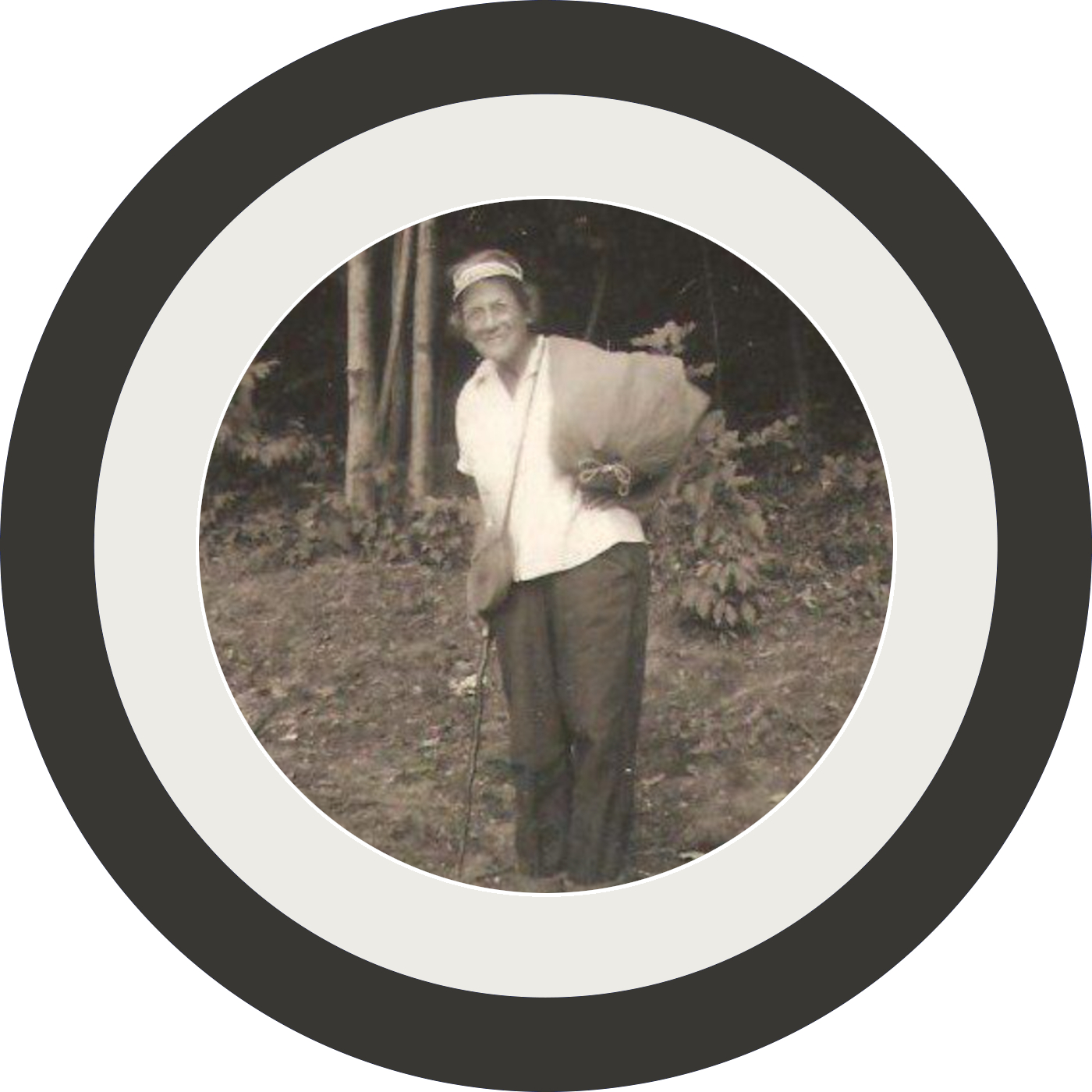Episode 204: Wolves
The Memory Palace is a proud member of Radiotopia from PRX.
Music
In My Heaven All Faucets Have Fountains by yes/and
A snippet of Runaway from Olafur Arnauld’s score to Gimme Shelter
Spectral Canon from Conlon Nancarrow from James Tenney
The Hourglass by Ben Crosland.
Learn about your ad choices: dovetail.prx.org/ad-choices
Press play and read along
Transcript
Speaker 1 Support for this podcast and the following message come from Sutter Health.
Speaker 1 Cancer diagnosis can be scary, which is why Sutter's compassionate team of oncologists, surgeons, and nurses work together as one dedicated team, providing personalized care for every patient.
Speaker 1 It's a whole cancer team on your team. Learn more at Sutterhealth.org.
Speaker 2 This episode of Memory Palace is brought to you by LifeKid. When you're a kid, you need all sorts of help, learning your ABCs, tying your shoes.
Speaker 2 Then you become a teenager and a young adult, and if you are like I was, you need all sorts of help, but you are hardly asking for or accepting any of it.
Speaker 2 Then you get older, you start looking around and thinking there has got to be a better or faster or safer way to do this thing, whatever that thing might be.
Speaker 2 And while you are looking around, you will notice that there's a ton of nonsense, there are a lot of quick fixes, a lot of just mumbo-jumbo.
Speaker 2 But then there's LifeKit, a podcast from NPR, where you can find thoughtful, expert-guided ideas and techniques about tackling issues in this thing we call Life.
Speaker 2 LifeKit delivers strategies to help you make meaningful, sustainable change. And the show is fun.
Speaker 2 You're flipping through episodes and bopping around thinking, yeah, I do kind of want to know what this whole thing is with seed oils and hear from people who really know and sort out the science from the hype.
Speaker 2 And then you put it on, and it is delightful and informative.
Speaker 2 And then you're kind of idly listening to this one about how you can avoid buying counterfeit products online and you're like, yeah, I do that technique.
Speaker 2 And yeah, I know that one too and yeah sure that one i'm no dummy but then you hear a couple more and you're like oh shoot yeah i almost fell for that yesterday and oh yeah i need that one for my back pocket life kit isn't just another podcast about self-improvement it is about understanding how to live a better life starting now listen now to the life kit podcast from npr
Speaker 2 This is the Memory Palace. I'm Nate DeMayo.
Speaker 2
There were wolves in the woods. woods, and bears too.
There had been bears and wolves and other wild things there in the woods since who knows how long.
Speaker 2 People first came to the woods 12,000 years ago, archaeologists tell us, though they can't tell us much about who those people were.
Speaker 2 They speak with more authority about the prehistoric people who followed, later civilizations who preceded tribes like the Seneca, the Mingo, the Delaware, and other peoples who can speak for themselves.
Speaker 2 People who hunted in the woods, contended and competed with the bears and wolves for some centuries until a new set of people arrived in 1795.
Speaker 2 We know that date exactly.
Speaker 2 When a man from Amherst, Massachusetts, a judge named Charles Hinckley, bought up 16,000 of the many hundreds of thousands of acres that had been recently claimed by some big land speculators in what we now call northeastern Ohio.
Speaker 2 The judge paid 23 cents per acre. He then carved up his purchase into 100 parcels and sold those off at a profit profit to other Easterners looking for a new life on the frontier.
Speaker 2 By 1818, the town of Hinkley, Ohio, was a moderately bustling farming community, boasting good soil, predictable weather, and abundant water.
Speaker 2 But there were wolves in the woods.
Speaker 2 And so there were farmers in their beds in the homes they had built at the edge of those woods.
Speaker 2 waking in the dead of night to the bleating of sheep and the howling of wolves, tearing and gnashing, feasting in the blue silver moonlight, unbothered by the musket crack and the whip of a bullet fired much too late by a man on his porch in his nightclothes, cursing at the shadows.
Speaker 2
It was like that most nights. You could lose a dozen sheep in your sleep.
One night one farmer lost 34, and then on another, the pack of wolves slipped beneath fences.
Speaker 2 farm after farm, killing more than a hundred sheep in a single night.
Speaker 2
Drag them through blood-slicked grass. The farmers had had it.
They decided to go to war with the wolves.
Speaker 2 Just before dawn on Christmas Eve, 1818,
Speaker 2 able-bodied men and big-enough boys encircled the woods of Pinkley, Ohio.
Speaker 2 They came armed for battle, with rifles and muskets and pitchforks, swords, clubs, spiked flails.
Speaker 2 They stood side by side, spread out along the borders of the town the judge had drawn up two decades before.
Speaker 2 Four commanders had been named, former military men, each placed in charge of the men lined up along each of the cardinal directions, the farms and fields and woods before them.
Speaker 2 And as the sun rose,
Speaker 2 so did a call along the line.
Speaker 2 Forward march.
Speaker 2 And they did.
Speaker 2 Six hundred men and boys.
Speaker 2 Out to kill every single wild animal in Hinkley, Ohio.
Speaker 2 In they moved, old snow crunching beneath their boots, gunshots and shouts, branches snapping, flocking birds taking wing, making their escape. Deer bolted, bounded, and dropped.
Speaker 2 Some charged, tried to break through the advancing lines, tried to leap over the oncoming men. But they were brought down with guns and garden tools.
Speaker 2 For hours the men moved forward, aiming low by design, they didn't want to shoot each other as they converged on a stand of trees at the center of town.
Speaker 2
With some buckshot winged a farmer, and he had to be carted away. Another caught a bullet, cracked the bone in his shin.
But by noon there were deer, hundreds dead on the ground.
Speaker 2 There were turkeys, foxes, raccoons, squirrels and rabbits, no threat, just killed for meat and sport.
Speaker 2
Several wolves, two bears. But there were more in the woods in that last patch of forest.
They were still on the run, still unkilled. And that couldn't stand.
The final assault was planned.
Speaker 2 With a new strategy, they would send in a strike team.
Speaker 2 The best of the hunters would go and finish the job, while the rest of the men waited at the tree line for those creatures who would dare and escape.
Speaker 2 None did escape.
Speaker 2 There are stories that the witnesses and historians of the Great Hinkley hunt, as it came to be known.
Speaker 2 There are stories they like to tell about the end of the war and the wolves and the other wild things who lived in that last bit of woods, but I will spare you from hearing more of what they thought of as heroics.
Speaker 2 In that handful of hours in November 1818,
Speaker 2 600 men and boys killed 21 bears, 17 wolves, 300 deer, and some unknown number of other creatures. Bounties were paid out, $15 per wolf, I do not know how much per bear.
Speaker 2 And then there was a party and bonfire, and there was food to last the winter and beyond.
Speaker 2 And there were no more wolves or bears in Hinkley, Ohio.
Speaker 2 Now and then a few would wander back in. But what's one bear against men with guns determined to keep every last sheep, determined to get a good night's sleep?
Speaker 2 And so before long, really just a handful of years, wolves and bears went extinct in that part of the world.
Speaker 2 That one hunt, those several hours one wintry morning in late fall of 1818, tamed the wilderness, turned the frontier into Ohio.
Speaker 2 As we still know it, there were no more wolves in the woods.
Speaker 2 But there were buzzards. Turkey vultures started circling well before the men of Hinkley, Ohio made that final assault on the forest.
Speaker 2 They had, and this is a little bit scientific speculation and a little bit local legend, but they'd been in the area flying from parts farther north to South America in their annual migration when they came upon this unbelievable feast.
Speaker 2 300 deer, 21 bears, 17 wolves, just lying there. I can't know what they thought, of course, if they think, really, but they had certainly never encountered anything like it.
Speaker 2 And because of that remarkable bounty, two centuries ago, Buzzards still return every year.
Speaker 2 We do not know how they do it.
Speaker 2 We do not know exactly why the descendants of those first circling birds still come back, but they do.
Speaker 2 Every March 15th.
Speaker 2 They are to Hinkley, Ohio, what the swallows are to San Juan Capistrano.
Speaker 2 And people,
Speaker 2 some possibly descendants of the very men and boys who could no longer abide living alongside wild animals, come out on an early morning in late winter to watch them as they arrive and circle above woods where there are no wolves.
Speaker 2 This episode of The Memory Palace was written and produced by me, Nate DeMayo, in April of 2023.
Speaker 2 The show gets research assistance from Eliza McGraw.
Speaker 2 It is a proud member of Radiotopia, a network of independently owned and operated listener-supported podcasts from PRX, a not-for-profit public media company.
Speaker 2 And I could not be happier to tell you that that network just got bigger. It is my profound pleasure to welcome one of my very favorite shows, Normal Gossip, to the Radiotoby family.
Speaker 2 This show is delightful. Its host, Kelsey McKinney, is the best virtual parasocial hang you could possibly ask for.
Speaker 2 And you know that thing when you're at a bar or you're hanging out at a friend's porch or whatever, and they tell you the craziest story about someone you don't even know, just some friend of a friend, some wild, wonderful, thrilling gossip.
Speaker 2 about regular people
Speaker 2 and it just feels like the best story you've ever heard
Speaker 2 That is the show.
Speaker 2
Anonymous, twisting, turning, gasp-worthy stories. It is the simplest idea, it is perfectly executed.
I love it. And you might too.
Speaker 2 So find out more about normal gossip in all the other Radiotopia shows at radiotopia.fm.
Speaker 2 If you want to know more about this show,
Speaker 2 you could go to my website, thememorypalace.us.
Speaker 2 You could follow me on Twitter or Facebook at thememorypalace. Or you could drop me a line at nate at memorypalace.us.
Speaker 2 Thanks for listening. Talk to you again soon.
Speaker 2 Radiotopia
Speaker 2 from PRX.





